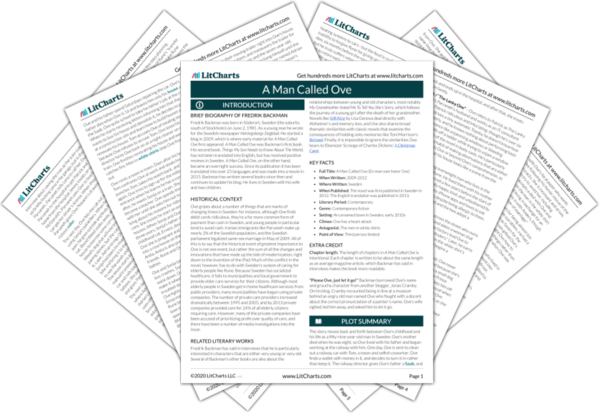Like the Mercedes Ove tormented on the way to the shopping center, Rune's BMW is a foreign car, and a luxury car at that, and is therefore seen by Ove as a rejection of Swedish culture and sensibilities. In Ove's mind, Rune is also responsible for the fact that Ove is no longer powerful in the Residents' Association. Notice too that Ove doesn't go if he doesn't have power; he doesn't see himself as useful or the organization as worthwhile if he's not the one steering it.
